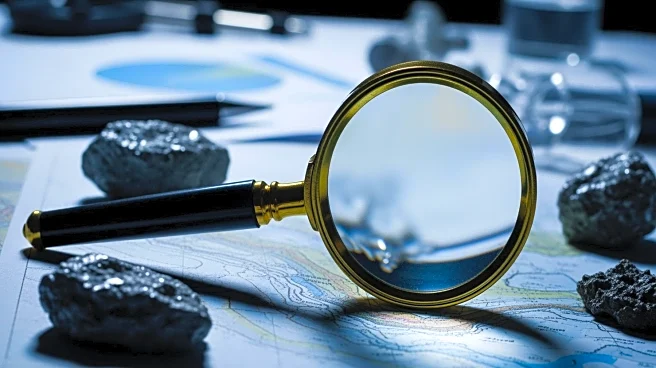What's Happening?
The International Atomic Energy Agency (IAEA) has reported that Iran increased its stockpile of uranium enriched to near weapons-grade levels before Israeli military attacks. As of June 13, Iran possessed 440.9 kilograms of uranium enriched to 60%, marking an increase of 32.3 kilograms since May. This enrichment level is a short technical step away from weapons-grade levels of 90%. The IAEA has not been able to conduct on-site inspections since the attacks, and Iran has not provided information on the status of its highly enriched uranium stockpile. The IAEA has called for inspections to resume, but Iran has suspended cooperation with the agency following the attacks.
Why It's Important?
The increase in Iran's uranium stockpile and the suspension of IAEA inspections raise significant concerns about nuclear proliferation in the region. The enriched uranium is theoretically enough to produce an atomic bomb if further enriched, posing a potential threat to regional and global security. The lack of transparency and cooperation from Iran complicates efforts to monitor and control nuclear activities, potentially escalating tensions between Iran and other nations, particularly Israel and the United States. The situation underscores the challenges faced by international bodies in enforcing nuclear non-proliferation agreements.
What's Next?
Negotiations between Iran and the IAEA are expected to continue, with discussions scheduled in Vienna. The IAEA is seeking to resume inspections and verify Iran's nuclear activities. Meanwhile, European nations have initiated a process to reimpose sanctions on Iran, which could take effect in a month unless diplomatic agreements are reached. The international community is closely monitoring the situation, with potential diplomatic efforts aimed at preventing further escalation and ensuring compliance with nuclear agreements.









